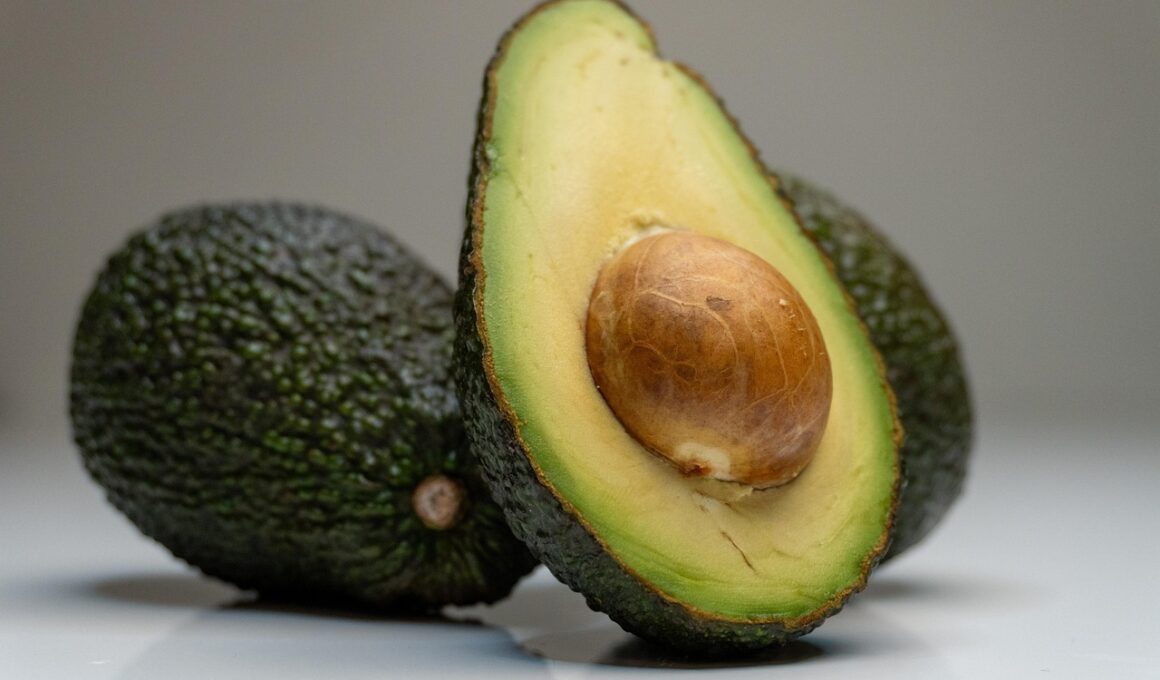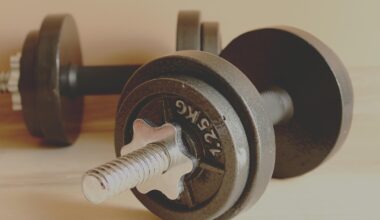Can Natural Foods Replace Supplements for Post-Exercise Recovery?
Post-workout nutrition is vital, with both natural foods and supplements playing significant roles in recovery. The choice between these options often depends on personal preferences, dietary restrictions, and recovery goals. Natural foods provide essential vitamins, minerals, carbohydrates, and proteins necessary for muscle repair and replenishment. Fruits, like bananas, offer potassium, aiding in muscle function, while protein-rich foods such as chicken or legumes help rebuild muscle fibers post-exercise. Alternatively, many individuals turn to supplements for convenience. Protein powders, for instance, can be quickly mixed into shakes, providing an intense protein boost when time is limited. However, the effectiveness of supplements compared to whole foods often sparks debate. Whole foods supply a balanced nutrient profile that works synergistically, unlike isolated nutrients found in supplements. Various aspects make natural foods appealing, while others highlight the advantages of supplements. Ultimately, it’s essential to assess individual needs and lifestyle, as both can potentially work well. Identifying key nutritional goals after workouts helps determine which foods or supplements better suit specific recovery plans. Understanding these distinctions is crucial for optimal recovery outcomes.
Understanding Nutrient Timing
Nutrient timing plays a fundamental role in maximizing recovery after exercises. The primary aim after a workout is to restore energy levels and repair muscle tissues. Ideal recovery involves a ratio of carbohydrates and proteins consumed shortly after exercising, generally within a two-hour window. Natural foods like fruits, grains, and lean meats can achieve this goal effectively. However, the practicality of nutrition timing can be challenging, especially when schedules are tight. In such cases, reaching for supplements such as protein bars or shakes becomes a practical option. These conveniently packaged products often cater to quick consumption, meeting immediate nutritional needs. Nevertheless, it’s essential to consider that while supplements can indeed provide a rapid solution, they should ideally complement a balanced diet that includes various unprocessed foods. Relying solely on supplements might lead to nutrient imbalances over time. Understanding when and how to integrate both options enriched in nutrients empowers individuals, ensuring they capitalize on recovery and efficiently restore muscle strength. Ultimately, awareness of nutrient timing guides the decision-making process, helping athletes achieve their desired performance outcomes.
When it comes to natural foods versus supplements, the preference often depends on taste and convenience. Some individuals prefer the satisfaction found in preparing a meal made from whole foods, while others find it challenging due to time constraints. Whole foods typically provide a broader spectrum of nutrients and antioxidants. These nutrients may be beneficial for post-exercise recovery, as they help reduce inflammation and muscle soreness. Meals consisting of vegetables, whole grains, and quality protein sources offer a more comprehensive recovery approach as they contain more fiber and beneficial compounds. On the other hand, dietary supplements are often formulated for convenience, allowing individuals to meet their nutrient requirements quickly and easily. For those who travel frequently or are busy, protein shakes or ready-to-drink options may be more practical. As both options have their pros and cons, it is crucial for athletes to recognize their personal needs and preferences in making informed decisions. Ultimately, understanding where each category excels is the key to developing a balanced post-workout recovery plan tailored to individual situations.
The debate surrounding the use of natural foods versus supplements continues as new scientific research emerges. Emerging studies suggest that whole foods might enhance recovery more effectively than traditional supplementation methods. For instance, certain foods possess specific properties that improve recovery outcomes beyond mere nutrient content. For example, tart cherry juice, rich in antioxidants, is becoming popular among athletes for its ability to reduce post-exercise soreness and inflammation naturally. This brings new discussions regarding the effectiveness of isolated nutrients versus whole food sources. Additionally, the body may have a genetic predisposition that affects nutrient absorption, further complicating the decision between natural foods and supplements. More research is needed to understand the effectiveness of both options thoroughly. Meanwhile, holistic and integrative nutrition approaches prioritize natural foods, emphasizing whole, nutrient-dense choices for recovery. This perspective shifts the focus from supplementation toward a holistic view of health, where food is considered more than the sum of its parts. Engaging in conversations around new nutritional trends helps establish best practices that align with optimal post-exercise recovery.
Personalization for Optimal Recovery
Every athlete’s needs are unique, with varying preferences and recovery requirements. Implementing a one-size-fits-all approach may not yield optimal results when considering post-exercise nutrition. Both supplements and natural foods can support recovery, but personalizing this nutrition becomes crucial. Factors such as the type of exercise, duration, fitness level, and individual metabolic responses can directly impact the recovery process. For instance, endurance athletes may benefit from more carbohydrates to replenish glycogen stores, while strength athletes may require a higher protein intake for muscle repair. This variability necessitates a customized diet, integrating both supplements and whole foods according to individual training goals. Depending on the unique requirements, some individuals may find they respond better to specific sources of recovery nutrition. Analyzing personal preferences helps establish a satisfying balance between taste, convenience, and nutrient intake. Keeping a food diary to track which foods or supplements improve recovery times may assist in personalizing a nutrition strategy. Ultimately, recognizing unique nutritional needs will pave the way toward improved performance and recovery outcomes in competitive and recreational athletes alike.
In addition to the above factors, cost and accessibility may influence choices between natural foods and supplements. Whole foods are often regarded as a more affordable option for many individuals, especially when accounting for their comprehensive nutrient profiles. Purchasing fresh produce, grains, and proteins in bulk can yield significant savings over time while offering versatile nutrition. In contrast, supplements can add up quickly due to recurring purchases. Hence, athletes should be mindful of their budgets and prioritize affordable natural food sources suitable for their personal tastes. Furthermore, local food availability may directly impact dietary choices. Access to farmers’ markets or health food stores can greatly increase the chances of incorporating diverse whole foods into a diet. Supplement options may be limited based on regional regulations and market availability, leading some athletes to prefer natural alternatives. Seeking out community resources advertising local produce and nutritional contents can expand options for post-workout recovery nutrition. Ultimately, these considerations play a pivotal role in the choice between natural foods and dietary supplements, emphasizing the importance of informed decision-making.
Lastly, it’s crucial to recognize the psychological aspect of nutrition choices when evaluating post-exercise recovery strategies. Food preferences and cultural influences shape how individuals perceive nutrition, impacting their receptiveness to either natural foods or supplements. A diet that emphasizes whole foods often aligns with a holistic view of health, nurturing both body and mind. For many athletes, the ritual of consuming a well-planned meal can enhance satisfaction levels following a workout. Consuming supplements may sometimes feel less gratifying than savoring a healthy, homemade meal. Exploring emotional connections and attitudes toward food may lead to a better understanding of nutritional choices and behaviors surrounding recovery. Encouraging positive relationships with food can replace negative associations that undermine performance through guilt or anxiety. Education on the benefits of both approaches empowers individuals to make choices aligned with their personal values. Recognizing the intersection of physical and psychological health facilitates improved recovery experiences. Ultimately, the goal is to cultivate a balanced attitude towards nutrition, incorporating both natural foods and supplements as part of an overall healthy lifestyle.


